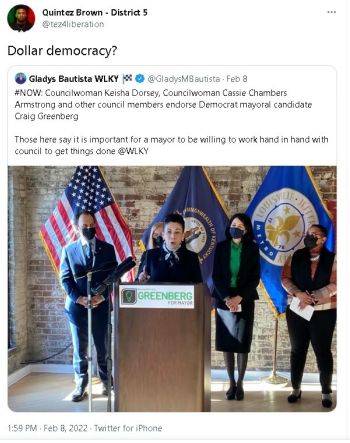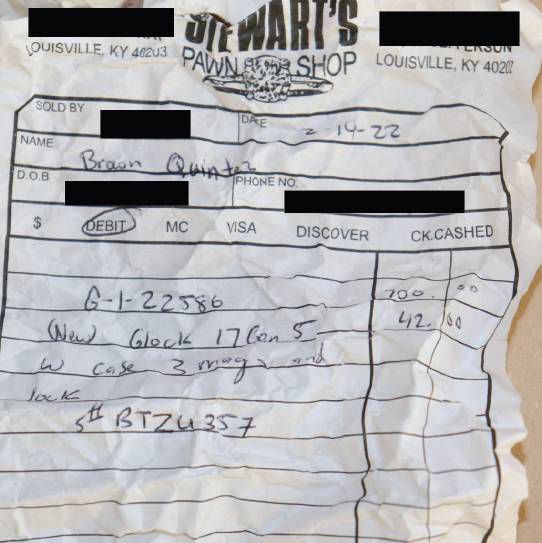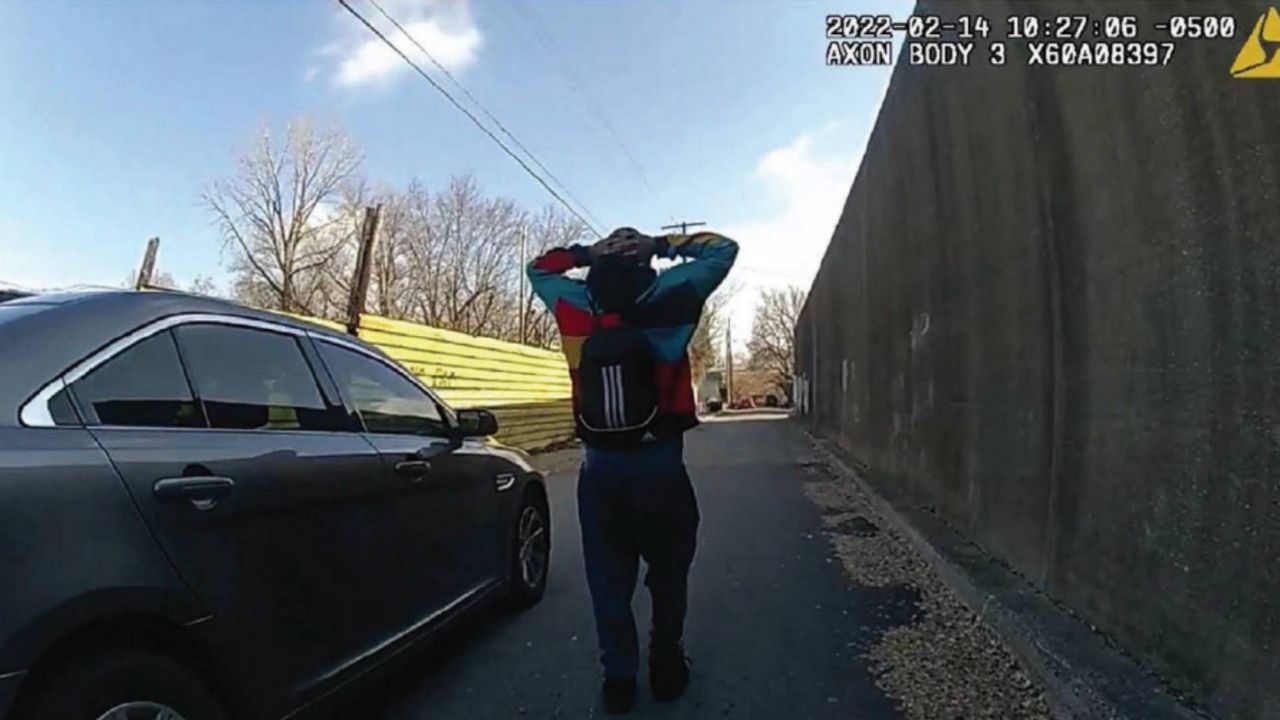LOUISVILLE, Ky. — Attorneys for Quintez Brown, the 22-year-old Louisville student and activist charged with attempted murder after allegedly firing a gun at Craig Greenberg, are hoping to have him released to home custody.
What You Need To Know
- Attorneys for Quintez Brown are hoping to have him released to home custody
- Prosecutors were previously seeking to block Quintez Brown's home incarceration release
- Federal agents arrested Brown for interfering with a federally protected right and using and discharging a firearm in relation to a crime of violence by shooting at and attempting to kill a candidate for elective office
- If convicted of all federal charges, Brown faces a mandatory minimum of 10 years in prison and maximum sentence of life in prison
Prosecutors in the United States v. Quintez Brown previously filed the motion to prevent Brown from being released to home incarceration. The motion includes photos from Brown's Feb. 14, 2022 arrest and a series of social media posts made shortly before the alleged shooting.
Brown's attorneys argued in a new court filing that he is now receiving care and should be released to home incarceration.
They stated that the U.S. Probation Office had recommended a pre-trial release stating that Brown is not "a risk of danger to the community."
The home incarceration order had been previously granted after concerns of mental health treatment were raised by Brown's attorneys.
Federal agents arrested Brown last week for interfering with a federally protected right and using and discharging a firearm in relation to a crime of violence by shooting at and attempting to kill a candidate for elective office. At the time, Brown was on home incarceration with a GPS ankle monitor and only charged with state-level offenses.

Brown’s attorneys argued he was unlawfully snatched out of his grandmother’s house by federal agents in the "surprise" arrest.
“We believe he was unlawfully seized by these agents, arrested and now incarcerated in the county jail,” said Patrick Renn, one of Brown’s attorneys in the federal case.
If convicted of all federal charges, Brown faces a mandatory minimum of 10 years in prison and maximum sentence of life in prison in addition to any sentence he receives on state charges of attempted murder and wanton endangerment. He has pleaded not guilty to all charges against him.
Brown wanted to kill Craig Greenberg to prevent him from winning the upcoming mayoral election, prosecutors argued, citing his internet search history, text messages, and online posts around the time of the February shooting.
The day before, Brown took a Lyft ride to the candidate’s home and, minutes later, searched the internet for instructions on how to fix a gun loaded with a backwards bullet, prosecutors said. He then left.
Magistrate Judge Colin Lindsay on Friday granted Brown’s release to home incarceration, but the suspect remains in federal custody because the judge also granted a request from federal prosecutors to pause the release while they file an appeal.
Greenberg, a Democrat, said he was at his campaign headquarters Feb. 14 with four colleagues when a man appeared in the doorway and began firing multiple rounds. One staffer managed to shut the door, which they barricaded using tables and desks, and the shooter fled.
Greenberg was not hit by the gunfire, but said a bullet grazed his sweater.
Brown, a social justice activist who was running as an independent for Louisville’s metro council, was arrested shortly after.

The morning of the shooting, prosecutors said that Brown purchased another gun at a local pawn shop. He then took a Lyft ride to Greenberg’s campaign’s office, where the attack occurred.
A few of Brown’s professors and supervisors from the University of Louisville testified in support of his release Friday. Dr. Ricky Jones, a professor of Pan-African Studies at the University of Louisville, said that Brown was a“star of the university” and a talented writer.
Brown, a former intern and editorial columnist for the Courier Journal, had been prolific on social media before the shooting, especially when it came to social justice issues. He was also involved in community violence prevention efforts and was a Martin Luther King Scholar at the University of Louisville, which included a full-ride scholarship.
Brown disappeared for about two weeks last summer. After he was found safe, his parents issued a statement asking for patience and privacy while they attended to his “physical, mental and spiritual needs.”
“He was one of the most brilliant kids I’ve ever met,” Jones said, describing Brown as very respectful, analytical, and well-liked. Jones also noted that he would even let Brown live with him if that was what the court wanted.
At one point during his testimony, Jones’ voice started to shake and he became emotional. Several people sitting in the pews in the back of courtroom also began to cry.
“I really wonder what happened to him,” he said.
In an op-ed published by the Courier Journal, Jones said he acknowledges that if Brown did what he's been accused of, he's in the wrong, but he's made a point to not abandon his former student.
"Those of us who care about Quintez want to know why he did it and what happened to this poor boy’s mind. We want him to be helped," Jones wrote. "Folks on the other side don’t care about that. They simply want this young man thrown on the scrap heap of humanity."
Brown is due back in court on April 28. He currently remains in federal custody.



